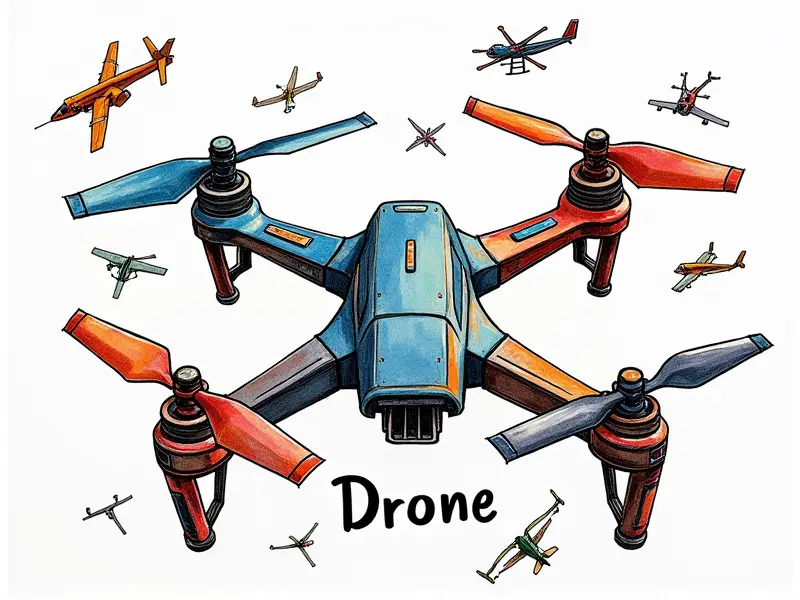Li-Po battery vs Li-ion

Which is Better: LiPo or Li-Ion Batteries?
The choice between LiPo and Li-Ion batteries largely depends on your specific needs. Both battery types have unique advantages, but they also come with certain trade-offs.
Lithium Polymer (Li-Po) batteries are known for their high energy density and lightweight design, making them ideal for applications where weight is a critical factor such as drones and RC vehicles. On the other hand, Lithium-Ion (Li-Ion) batteries offer robust performance with longer cycle life and lower cost per watt-hour.
LiPo vs Li-Ion: Performance Compared
When comparing the performance of LiPo and Li-Ion batteries, several factors come into play:
- Discharge Rate: Li-Po batteries can handle higher discharge rates compared to Li-Ion batteries. This makes them suitable for high-power applications like RC vehicles.
- Voltage: LiPo batteries typically have a nominal voltage of 3.7V per cell, while Li-Ion cells are usually around 3.6V. However, the actual operating range can vary based on the specific chemistry and design.
- Cycles: Li-Po batteries generally offer fewer charge cycles compared to Li-Ion batteries due to their higher energy density and faster discharge rates.
Advantages of LiPo Over Li-Ion for Drones
Lithium Polymer (Li-Po) batteries are particularly advantageous when it comes to drones:
- Weight: LiPo batteries are lighter and more compact, which is crucial for achieving longer flight times.
- Power Density: Higher power density means that a smaller battery can deliver the same amount of energy as a larger Li-Ion battery.
- Flexibility: The flexible nature of LiPo batteries allows them to be molded into various shapes, fitting better in tight spaces within drones.
Best Battery Choice: LiPo or Li-Ion?
The best choice between Li-Po and Li-Ion depends on your specific requirements:
- Drones & RC Vehicles: Opt for LiPo batteries due to their high power density, lightweight design, and flexibility.
- Laptops & Mobile Devices: Choose Li-Ion batteries as they offer a balance of performance, longevity, and cost-effectiveness.
Why RC Pilots Prefer LiPo Over Li-Ion
RC pilots often prefer Lithium Polymer (Li-Po) batteries for several reasons:
- Better Performance: Higher discharge rates and lower internal resistance mean better performance in high-power applications.
- Fuel Efficiency: LiPo batteries provide more power per unit weight, leading to longer flight times or runtimes for RC vehicles.
Cost Analysis: LiPo vs Li-Ion Batteries
The cost of Li-Po and Li-Ion batteries varies based on several factors:
- Initial Cost: LiPo batteries can be more expensive upfront due to their higher energy density.
- Long-Term Costs: While LiPo batteries may cost less initially, they have a shorter lifespan and require more frequent replacement compared to Li-Ion batteries.
Understanding the Differences in LiPo & Li-Ion
Lithium Polymer (Li-Po) and Lithium-Ion (Li-Ion) batteries differ in several aspects:
- Battery Chemistry: Both use lithium-based chemistry, but the electrolyte differs. Li-Po uses a polymer electrolyte while Li-Ion has a liquid electrolyte.
- Design Flexibility: LiPo batteries are more flexible and can be shaped to fit specific needs, whereas Li-Ion batteries have a rigid design.
Durability Test: LiPo vs Li-Ion
When it comes to durability, both battery types perform differently under various conditions:
- Cycle Life: Li-Po batteries typically offer fewer charge cycles compared to Li-Ion due to their higher energy density.
- Temperature Sensitivity: Both are sensitive to temperature, but LiPo batteries can degrade faster if exposed to extreme heat or cold.
Should You Switch from Li-Ion to LiPo?
The decision to switch from Li-Ion to Li-Po depends on your specific needs:
- If you need higher power density and lighter weight, consider switching to Li-Po.
- However, if longevity and cost-effectiveness are more important, sticking with Li-Ion might be the better choice.
RC Power Showdown: LiPo vs Li-Ion
In a direct comparison for RC applications:
- Li-Po Wins in High-Performance Scenarios: Due to their higher discharge rates and lighter weight, LiPo batteries are the preferred choice.
- Li-Ion Offers Balanced Performance: While not as powerful as LiPo, Li-Ion batteries provide a good balance of performance and longevity.
LiPo or Li-Ion? Choosing Your RC Battery
To make an informed decision when choosing between Li-Po and Li-Ion for your RC applications:
- Evaluate Power Needs: Assess the power requirements of your RC vehicle.
- Weigh Cost vs Performance: Consider both upfront costs and long-term expenses.
Conclusion
The choice between Li-Po and Li-Ion batteries ultimately depends on your specific application needs. For high-performance, lightweight requirements such as drones and RC vehicles, LiPo batteries are the superior option due to their higher power density and flexibility. However, for applications where longevity and cost-effectiveness are more important, such as laptops and mobile devices, Li-Ion batteries offer a better balance of performance and durability.

